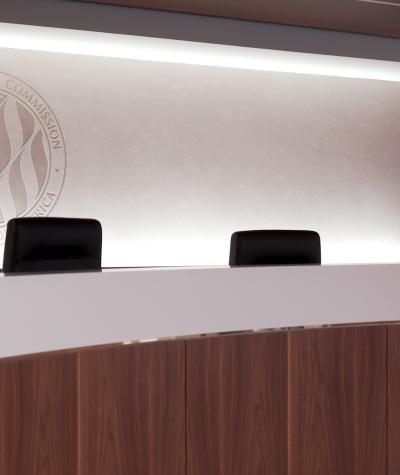After nearly a year and a half, the Federal Election Commission (FEC) again has a quorum. Now, ahead of the first public meeting with its three newest commissioners, Campaign Legal Center (CLC) is urging the agency to carry out its obligations of enforcing, administering, and interpreting campaign finance laws.
As the only government agency entrusted with overseeing the integrity of our political campaigns, the FEC should take this opportunity to turn the page on its 10-year period of dysfunction, which has resulted in an explosion in secret spending and our politics increasingly rigged in favor of special interests.
Last summer, during the commission’s brief restoration of a quorum, CLC sent the FEC a letter outlining seven long-pending rulemaking matters. More than six months later, CLC again urges the commission to move forward on these pressing issues.
As the 2020 election cycle made clear, the problems addressed in the rulemaking petitions continue to negatively impact our political process. The FEC has the power to make our elections more transparent and fairer by providing clarity on these issues.
Now that the FEC is back to work, it should turn to these long-pending regulatory matters and take action to:
- Clarify that the ban on personal use of campaign funds applies to politicians’ leadership PACs: Leadership political action committees (PAC) were originally intended as a means for candidates and office holders to support other candidates’ campaigns. Yet over the past several years, only a minority of leadership PAC spending has been used for that purpose, with many candidates instead using the committees as their own personal slush funds. The FEC must act to clearly prohibit leadership PAC funds from being converted to personal use.
- Implement transparency requirements for so-called dark money groups that run ads advocating for and against candidates: In 2018, a federal court invalidated an FEC rule that allowed up to $769 million in secret money to flow into our elections. More than 26 months later, the FEC has yet to write a new rule in its place, allowing dark money to continue to plague our political process. The FEC should act to adopt new regulations, bringing transparency to our elections.
- Clarify on-ad disclaimer requirements for digital political ads: Voters have a right to know who is trying to influence them online. For more than a decade, the FEC has been mulling how to update their rules to reflect the nature of online political campaigning. It is long past time for the commission to clarify that “paid for by” disclaimers–already required for political ads on television–apply to digital political ads.
- Explain how the ban on personal use of campaign funds applies once a candidate is no longer running for office: For years, CLC has been asking the commission to address the troubling trend of candidates and officeholders leaving open, and dipping into, their old campaign accounts long after they have stopped running for office. The FEC needs to clarify and strengthen their rules to stop this.
- Institute basic disclosure for parties’ big money “cromnibus” accounts: Owing to the “cromnibus” spending bill passed by Congress in 2014, each national party now operates up to seven special purpose accounts, allowing them to accept hundreds of thousands of dollars more from individual donors than was previously permitted. But because the FEC has yet to make new rules implementing the law, it is virtually impossible for the public to consistently track the large sums of money flowing into these accounts. The FEC needs to update basic disclosure requirements for national party “cromnimbus” accounts.
- Close the list-swap loophole: Though federal law requires political committees to publicly disclose all of their receipts and disbursements, the FEC has improperly allowed PACs to secretly transfer prized supporter lists to each other if they claim the exchange was part of an equal value “swap.” CLC filed a rulemaking petition with the FEC in 2019 to close this loophole.
- Close the cycle-change loophole that allows super PACs to strategically postpone revealing their donors: Some super PACs have strategically exploited current reporting laws to avoid disclosing their wealthy special interest donors until after elections. The FEC should take steps to close that loophole.
The disproportionate financial power of wealthy special interests in American politics threatens our First Amendment right to have our voices heard, and the failure of the FEC to enforce campaign finance laws has lead to in an explosion in secret spending. As a result, our politics are increasingly rigged in favor of special interests.
Read CLC’s letter to the FEC here.

